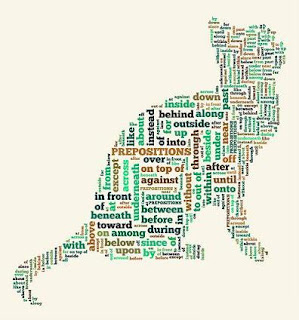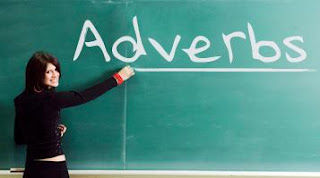Parts of Speech - Identification
Noun :
Simply we can call it as the Naming Word. A name of a Person, Place, Animal, Thing, etc..
Examples : Shivani, Bangalore, Tiger, Table, etc..,
Pronoun :
A word used for or in the place of noun.
Adjective :
A word that qualifies or describes a noun or a pronoun.
Examples : Our team played a good game
adj. noun
Every sentence that he spoke was listened to with great attention.
adj. noun
All these proposals are good.
adj.
Note : Some words are used either as pronouns or as adjectives as in the following examples.
Verb :
A verb expresses what the subject of a sentence is or does, or has, or what is done to it.
Ex :
Shivani teaches Maths.
verb
She has taught the subject for twenty-five years.
verb
She is a capable teacher
verb
Adverb :
A word that modifies an adjective or a verb or another adverb.
Ex :
I am deeply grateful to you for your timely help.
adv adj
This horse runs very fast.
v adv adj
Preposition :
Look at the words underlined in these sentences.
Work in the college begins at 10 a.m.
He wrote the document with a pen.
The professor gave a lecture on Superconductivity.
The P.M. reaches Bangalore after the President does.
The words underlined are called Prepositions because they normally take position before
(pre) a noun. The preposition is said to 'govern' the noun that follows
it. The noun is said to be the 'object' of the preposition.
Besides single-word prepositions, there are also phrases which do the work of prepositions and are called 'Phrase Prepositions'.
Types of Prepositions :
- Single - word Prepositions :
- In, On, After, At, With, Under, Above, etc. (These are Simple Prepositions)
- Phrase Prepositions (Complex Prepositions) :
- Some types of Complex Preposition structures with examples are given below.
- Adverb + Preposition :
- Along with, Apart From, As for, As to, Away from, Onto, Outof, Together with, Upto, Such as.
- Verb / Adjective / Conjunction, etc. + Preposition :
- Except for, Owing to, Due to, But for, Because of....
- Preposition + Noun + Preposition :
- By means of, On account of, In comparison with, In accordance with, In view of, In spite of, Instead of...
CONJUNCTION :
A Conjunction is a word that joins words, phrases and sentences.
Ex :
Delhi and Calcutta are densely populated cities.
She must be either the President or the Secretary of Pakistan.
The professor read the essay and was impressed by it.
He is not only intelligent in his studies but also industrious in his life.
INTERJECTION :
Word which expresses a strong or sudden feeling.
Surprise, Joy, Fear, Sadness, etc. It is not grammatically connected
with the rest of the sentence. Usually, exclamation mark is put after
it.
Example :
Ah1 Hurrah! Well! Dear! Oh!
Liked this post? READ MORE HERE >>


















